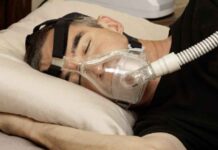

DARIEN, IL – Are your teenagers grumpy? Always in a bad mood? The answer could come over that age old battle of getting enough sleep at night. The latest study suggests that insufficient sleep increases the frequency of bad moods, and other issues for teenagers.
“These results are important because variability in mood and emotional dysregulation can interfere with social, school, and behavioral functioning, and may contribute to the development of more severe psychopathology,” said senior author, Dean Beebe, PhD, professor of pediatrics at Cincinnati Children’s Hospital Medical Center and University of Cincinnati College of Medicine. “The promising aspect of this finding is that sleep can be modified and by promoting healthy sleep we could potentially prevent the development and/or maintenance of more serious mental health problems for some teens.”
A new study of adolescents suggests that obtaining an insufficient amount of sleep increases variability in sadness, anger, energy and feelings of sleepiness. The study also showed that nightly fluctuations in sleep in healthy adolescents predict worse mood the next day, and worse mood any given day largely predicts unusually bad sleep the next night.
Results show that adolescents showed increased variability in sadness, anger, and sleepiness when sleep was restricted compared to when sleep was extended. This effect was not moderated by age, sex, race, or the order in which participants underwent the sleep conditions.
The research abstract was published recently in an online supplement of the journal Sleep and was presented in Denver at SLEEP 2016, the 30th Anniversary Meeting of the Associated Professional Sleep Societies LLC (APSS).
The study group consisted of 97 healthy adolescents aged 14-17 (64.9 percent female, 46.9 percent European American). Participants completed 5 consecutive nights of sleep restriction (i.e., 6.5 hours in bed) and 5 nights of extended sleep (i.e., 10 hours in bed) in a randomized, counterbalanced cross-over experimental design, with a 2-night washout between conditions. Adolescents reported on feelings of nervousness, sadness, anger, energy, fatigue, ability to concentrate, and sleepiness each day of the study. Variability in mood was measured by the standard deviation of these daily mood scores across each condition.






